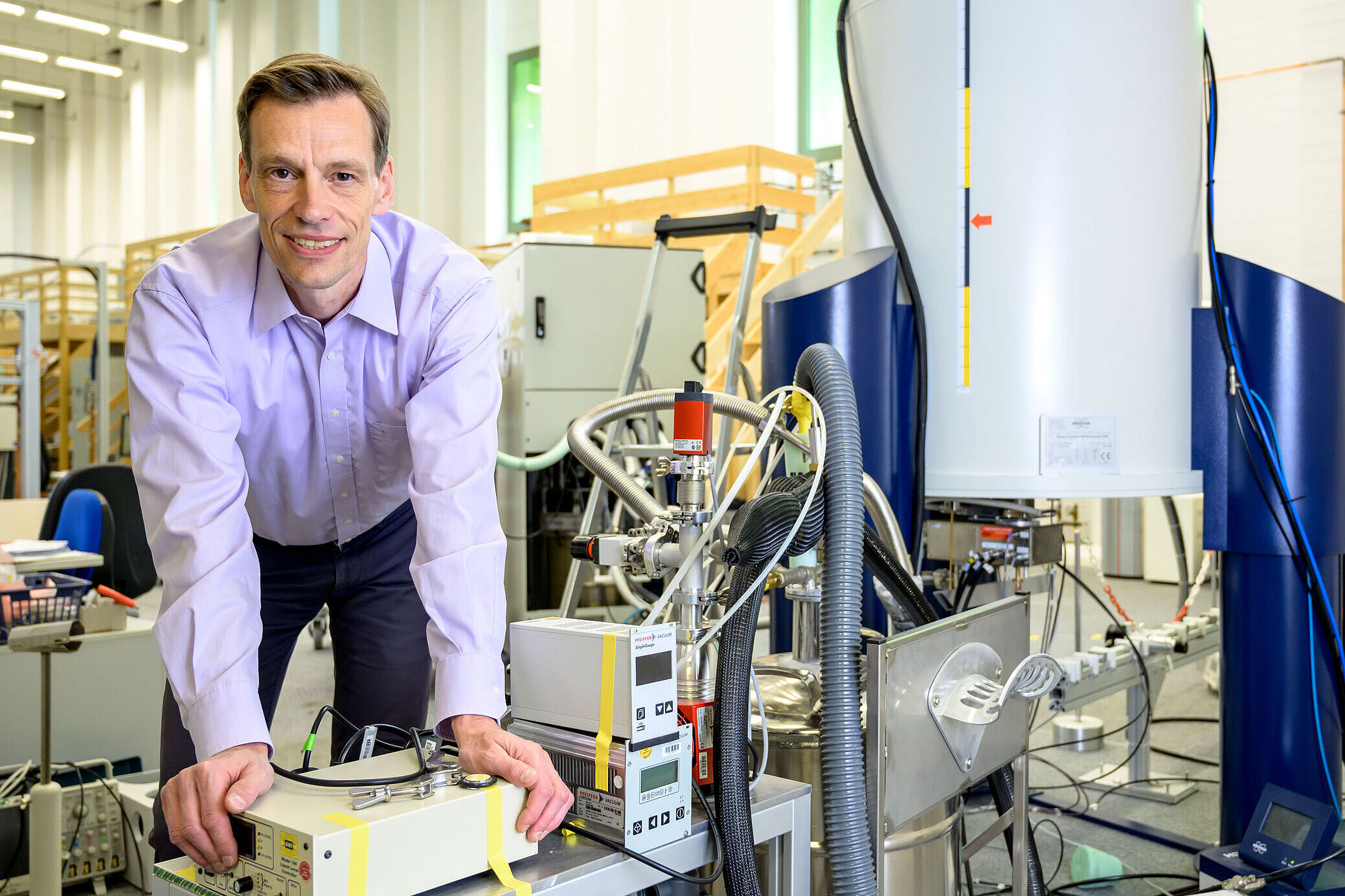Biophysicist Markus Zweckstetter seeks to unravel the action of enzymes in Alzheimer’s disease
Göttingen/Germany, April 15, 2024. Prof. Markus Zweckstetter from DZNE’s Göttingen site has been awarded around 2.5 million euros for research into biomolecular mechanisms involved in Alzheimer’s disease. Specifically, his studies will focus on so-called kinases, a special class of enzymes. From the five-year research project, the Göttingen biophysicist and his team aim to gain insights for the development of new drugs. The investigations will be conducted in close collaboration with the Max Planck Institute for Multidisciplinary Sciences (MPI-NAT). The funding is provided by the European Research Council (ERC) through of a prestigious “Advanced Grant”.
In the course of Alzheimer’s disease, so-called tau proteins separate from the molecular scaffolding that stabilizes neurons, which ultimately leads to their degeneration. The detachment process is associated with a chemical reaction that links the tau proteins to phosphate groups. “This abnormal phosphorylation is a central process in Alzheimer’s disease. With our research project, we aim to gain a better understanding of this process and thus pave the way for drugs that target precisely this process,” explains Markus Zweckstetter.
Dynamic structures
Phosphorylation is triggered by special enzymes called “kinases”: this is why they are the focus of the current project. These are complex molecules that consist of tens of thousands of atoms and form very dynamic structures. In other words: a kinase is by no means static, its shape can change – which in turn influences its action. “These reaction kinetics and the way in which these macromolecules change their shape are not well understood. We intend to investigate this with atomic precision. To this end, we use so-called NMR spectroscopy,” says Zweckstetter. A key aspect of the project is therefore the collaboration with the MPI-NAT, which operates several high-performance NMR spectrometers. Zweckstetter is the connecting link between the two institutions, as he is a research group leader at both the DZNE and the MPI-NAT.
Tiny droplets
The biophysicist suspects that a phenomenon called “liquid-liquid phase separation” is crucial for the behavior of kinases and their effect on tau proteins. “Numerous such enzymes engage with so-called condensates. These are tiny droplets, so to speak, that float around in the cytosol. It’s similar to oil bubbles in a vinaigrette,” says Zweckstetter. “Within these droplets there is a specific chemical-physical environment that influences the behavior of the kinases. That’s the central idea I’m working from. And that’s why we aim to elucidate the interaction between the environment in the condensates and the effect of the enzymes.”
Curbing enzymes
According to Zweckstetter, one obvious therapeutic approach is to reduce the effect of the kinases using appropriate drugs. “Although such inhibitors already exist, they are not sufficiently effective or not tolerated well enough to be used in therapy. In order to develop appropriate drugs, we need to better understand the function of these kinases. With our project, we are therefore aiming for a real leap in knowledge. That is an ambitious objective. But given our experience, staff and state-of-the-art measurement technology, we are well positioned for achieving this goal.”
About the Deutsches Zentrum für Neurodegenerative Erkrankungen, DZNE (German Center for Neurodegenerative Diseases): DZNE is a research institute for neurodegenerative diseases such as Alzheimer’s, Parkinson’s and ALS, which are associated with dementia, movement disorders and other serious health impairments. To date, there are no cures for these diseases, which represent an enormous burden for countless affected individuals, their families, and the healthcare system. The aim of DZNE is to develop novel strategies for prevention, diagnosis, care, as well as treatment, and to transfer them into practice. DZNE comprises ten sites across Germany, it cooperates with universities, university hospitals, research centers and other institutions in Germany and abroad. It is a member of the Helmholtz Association and of the German Centers for Health Research.

